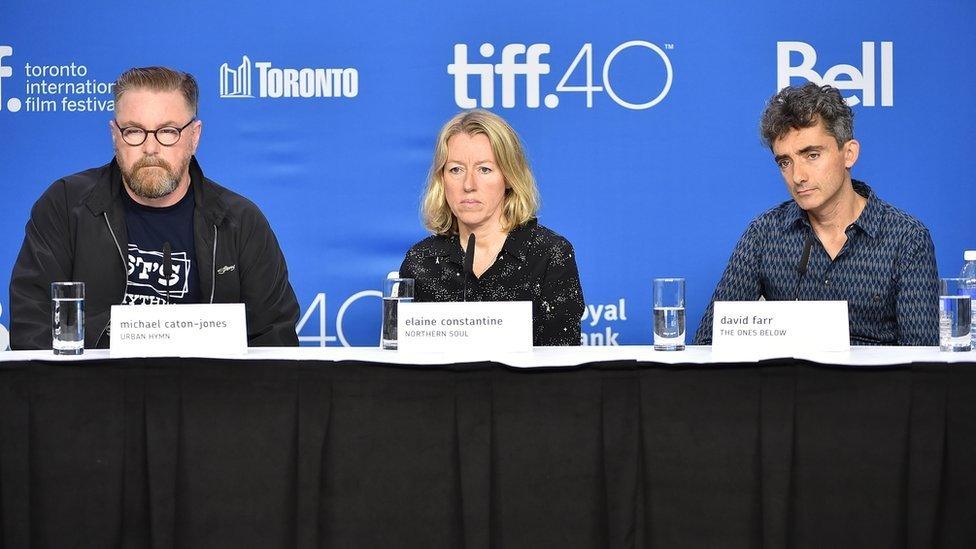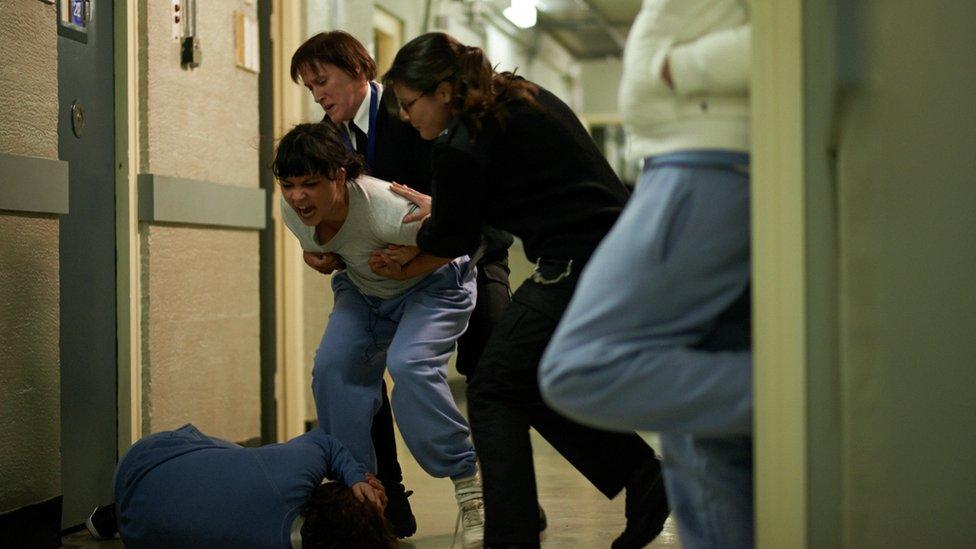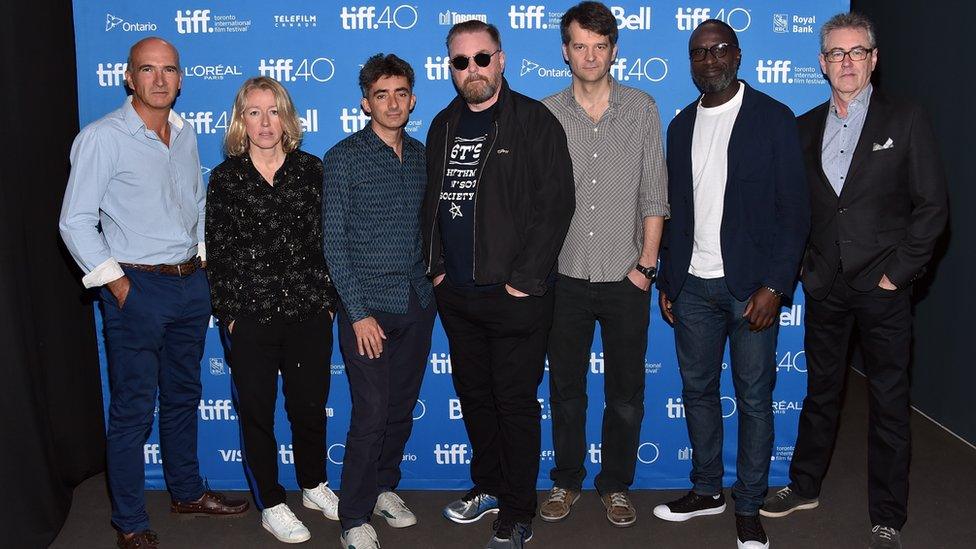TIFF: Middle class has a 'cultural choke-hold' on UK film
- Published

Michael Caton-Jones, Elaine Constantine and David Farr were part of a panel of six British directors at the press conference for the City to City strand, which is focusing on films from London
The middle class has a "cultural choke-hold" on UK film production, according to director Michael Caton-Jones.
Speaking at the Toronto Film Festival, he said film-making in the UK was "essentially a bourgeois sport".
As as result he said the film industry in the UK had "almost been ghettoised".
"You can make an expensive picture with a Redmayne or a Cumberbatch, or you can go down the estates and hug some hoodies and you've got no money and that's basically your choice."
"And it's a horrible reflection of our culture because there's a gazillion different stories.
"Unfortunately the middle class have this cultural choke-hold on what we get to make. If you want to make a film it's got to be one of them two.
"If I sound bitter, it's because I am," he added.
Caton-Jones is known for films including Memphis Belle, Scandal and Rob Roy.

Michael Caton-Jones's film Urban Hymn, is set against the backdrop of the 2011 London Riots
He is in Toronto to promote his low-budget drama Urban Hymn, about two disturbed teenagers and their social worker, set against the backdrop of the 2011 London riots.
The Scottish-born film-maker was one of six British directors speaking at a press conference for the festival's City to City strand, which is focusing on films from London.
'Cultural dead end'
He was particularly scathing about one strand of British movie-making.
"The most loathsome kind of film is this "heritage Britain" - it's basically schilling for tourists to get people to come and visit the place," he said.
"And it's a kind of cultural dead hand that really is a dead end - it's horrible.
"If you want to work you've got to do that kind of crap sometimes and it's kind of painful. You just have to kind of bruise your way through if you want to do something difficult. It really is taking the hard road."
Fellow panel member David Farr - whose debut film, The Ones Below, is about a middle class couple engaged in a battle of wits against their downstairs neighbours - agreed with Caton-Jones's analysis.
"The films that really drive me mad are the posh films made by posh people about posh people," he said.

The City to City panel was made up of (L-R) directors Paul Katis, Elaine Constantine, David Farr, Michael Caton-Jones, Tom Geens, George Amponsah and TIFF CEO Piers Handling
"Most of them are set in about 1930 and there's always a king. And they're the ones that create the problem and we all shuffle around underneath this dreadful, awful thing. And that's the bit [of the industry] you need to blow up."
'Could be a richer diversity'
Elaine Constantine, who is at the festival with her film Northern Soul, said the problem with the UK film industry was that "we're playing poor relative to the US market".
"Everything that we produce, or everything that's backed... has to be appealing to the American audience because of our language.
"I've been in so many meetings where people say 'You can't do a film about the north... because the Americans won't understand them'.
"A lot of my experience of trying to get funds was all about making a homogenised product."
Film London and the British Film Commission responded to the film-makers' comments saying that the UK "has a rich output of filmmaking across a huge range of films and genres, with a multiplicity of voices".
"Through our various production and training schemes at Film London we support a broad range of film-makers contributing to evolving the industry and embracing new audiences," chief executive officer Adrian Wootton told the BBC.
But they did "not dispute there could be a richer diversity".
"Our criteria is based on the strength of the story and belief in the talent bringing that story to the screen. We are, however, addressing the fact the number of diverse talent working in the industry is falling, so run a shorts scheme for black, Asian and minority ethnic talent.
"Funding talent who have a track record, London Calling Plus aims to ensure more diverse talent comes into the industry which will also have a powerful and positive impact on the output and a broader range of films."